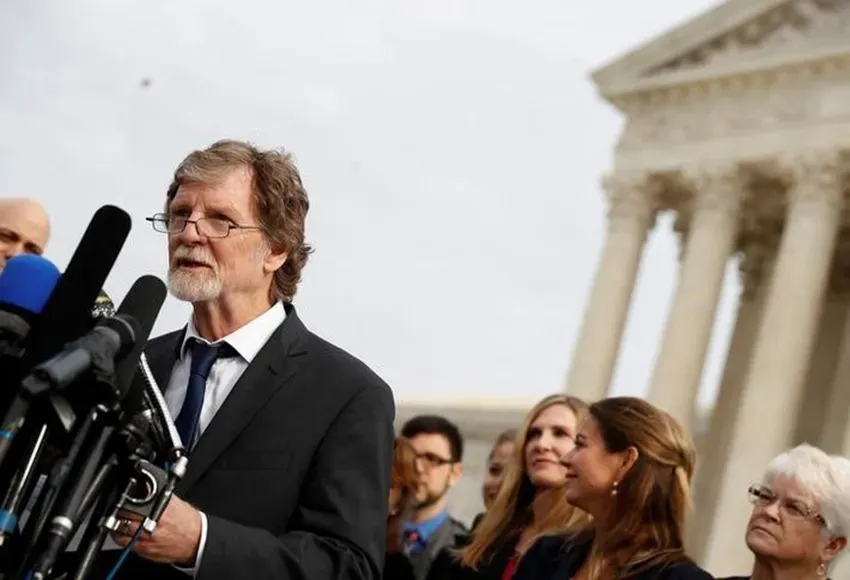Christian baker Jack Phillips of Masterpiece Cakeshop has lost his appeal in a court case sparked by his refusal to make a cake celebrating a customer's newly proclaimed Trans identity.
A three-judge panel of the Colorado Court of Appeals affirmed a prior trial court decision that Phillips violated the Colorado Anti-discrimination Act by turning away a Transgender customer on account of her gender identity.
Phillips had claimed that his First Amendment rights to free speech and free exercise of religion would have been violated if he'd been forced to make a cake celebrating Trans identity, since his religion disapproved of gender transition.
The appeals court rejected that assertion, telling Phillips that the cake – a simple sheet cake in pink and blue Trans colors with the customer's chosen name on it – "expressed no message" that would violate Phillips' rights.
"[N]ot all conduct constitutes speech," the court added.
The original complaint was lodged against Phillips and Masterpiece Cakeshop by Autumn Scardina, a Trans woman, after Phillips refused to make a cake for her.
"Scardina testified she requested a custom pink and blue cake with no message or other design elements. The trial court found that Debra [a Masterpiece Cakeshop employee] agreed to make that cake but then retracted the commitment once Scardina told her what the cake was for," the court noted in its opinion.
The Alliance Defending Freedom (ADF), which is representing Phillips, denounced the appeals court's decision and vowed to appeal it, saying it was part of a campaign of harassment against the Christian baker.
This case is not Phillips' first run-in with the Colorado Anti-discrimination Act. In 2017, he was involved in a similar case when he refused to make a cake for a same-sex wedding. The ADF appealed that case all the way to the US Supreme Court.
In its ruling in that case, the high court dodged the question of whether Phillips has a constitutional right to discriminate against LGBTQ customers and ruled on a much narrower ground – reversing Phillips' conviction on the grounds that the Colorado Civil Rights Commission had showed anti-religious bias in its questioning of Phillips.
A much more right-wing Supreme Court may now get a chance to issue a definitive ruling on how far the religious views of business owners are protected against the rights of customers to fair and equal service.


